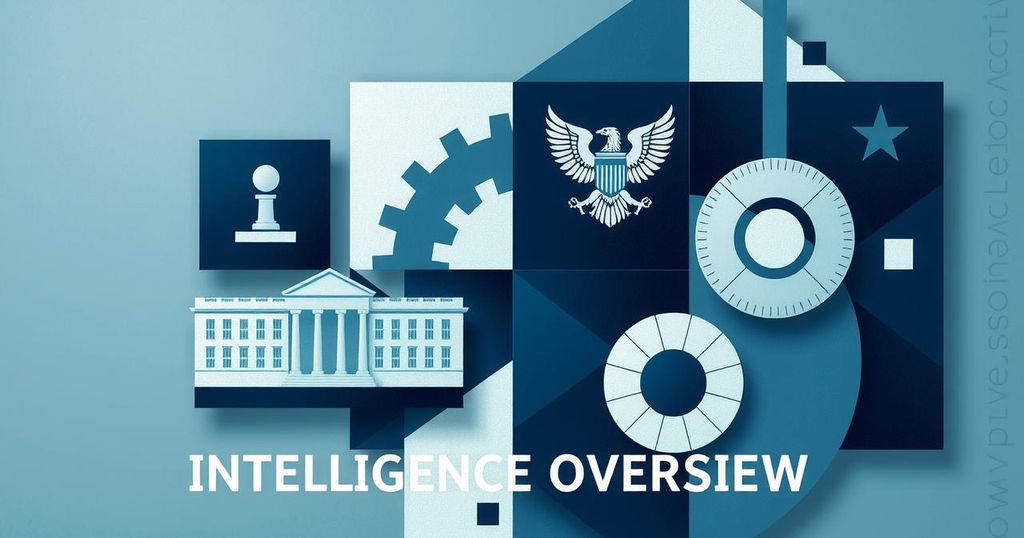Gabbard Dismisses NIC Officials Following Disputed Intelligence Assessment

Director of National Intelligence Tulsi Gabbard has fired two senior officials from the NIC after a report disputed President Trump’s claims about the Venezuelan gang Tren de Aragua. This move is part of a broader effort to eliminate biases in the intelligence community. Critics argue the firings serve political purposes and threaten the integrity of intelligence assessments.
In a significant shake-up within the U.S. intelligence community, Director of National Intelligence Tulsi Gabbard has dismissed two senior officials from the National Intelligence Council (NIC). This decision was confirmed on Wednesday and appears to stem from a recent NIC assessment that contradicted President Donald Trump’s assertions regarding the Venezuelan gang, Tren de Aragua.
The NIC’s report, released on April 7, suggested that it is unlikely that Venezuelan President Nicolás Maduro is involved in directing or facilitating Tren de Aragua’s criminal activities in the United States. This directly challenges Trump’s claims, which he has used to justify deporting alleged Venezuelan gang members by invoking the Alien Enemies Act. The report, recently made public through a Freedom of Information Act request, clarified that the Maduro regime is not actively cooperating with the gang.
Interestingly, the FBI analysis cited within that NIC report does mention that some Venezuelan officials may be enabling the migration of gang members to the U.S., which they believe serves the Maduro administration’s destabilization efforts. The existence of this assessment was first reported by The Washington Post earlier in April, and it appears pivotal in the intelligence disputes currently unfolding.
Gabbard’s recent firings of acting NIC director Mike Collins and deputy Maria Langan-Riekhof come amid a broader initiative from her and her team to eliminate perceived biases within the intelligence community. The dismissals of what they referred to as “Biden holdovers” have drawn criticism from some quarters. Alexa Henning, Gabbard’s deputy chief of staff, stated that the dismissals were warranted due to the politicization of intelligence.
Reports indicate that the firings were anticipated, particularly in light of Gabbard’s focus on investigating potential leaks of sensitive information. Mark Warner, the vice chairman of the Senate Intelligence Committee, publicly criticized the firings, asserting that the motivations behind Gabbard’s purge were politically motivated and not in the interest of national security.
While the responses from Collins and Langan-Riekhof were not immediately available, Jonathan Panikoff, a former NIC official, weighed in on social media, emphasizing the council’s reputation for impartiality and high-quality analysis, a stark contrast to the recent firings.
Adding to the context is Trump’s long-standing suspicion of the intelligence community, a sentiment fueled by past reports on Russian interference in the 2016 election. Accusations of a politically biased “deep state” have often emanated from the former president, feeding further division within the intelligence apparatus. This recent situation reflects ongoing tensions between political objectives and the integrity of U.S. intelligence assessments.
DNI Gabbard’s actions appear to be part of a wider campaign to reshape the intelligence narrative, raising questions about the future of U.S. intelligence assessments and their ability to remain apolitical in an increasingly partisan environment.
In summary, the recent firing of NIC officials reflects a contentious battle over the perceived politicization of intelligence assessments. Gabbard’s actions seem aimed at reshaping the intelligence community and reinforcing a narrative that aligns with the current administration’s goals. However, critical voices from the Senate suggest a troubling trend where intelligence might be compromised for political convenience, underscoring an ongoing need for impartiality amidst growing suspicions.
Original Source: www.nextgov.com








